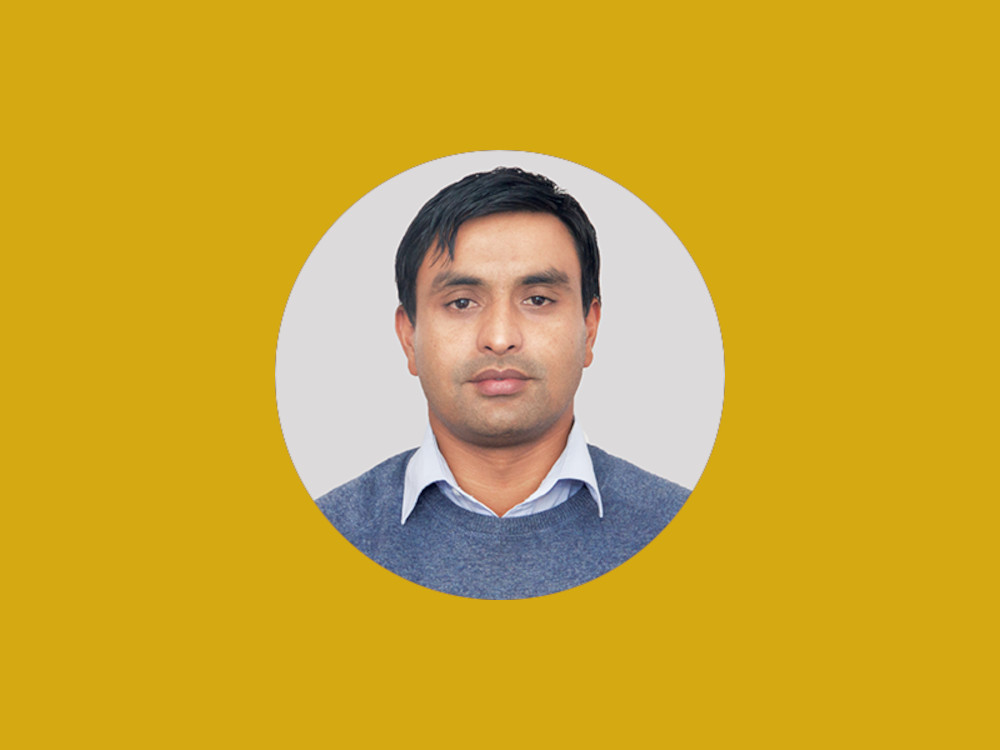Leknath KC tells The Other Cheek what is like to follow Christ in Nepal
I was born and brought up in the western part of Nepal,in Dhaulagiri Rural Municipality-7 in Myagdi District which is a very rural part of Western Nepal.
When I was born we didn’t have any roads and no electricity either and our livelihood and lifestyle was totally dependent on agriculture. I was born and brought up in that we can call Orthodox Hindu family. My father was a head teacher of a government school which in the context of Nepal at that time was a middle class family.
But around 28 years ago, mu father got sick with severe headaches so he couldn’t see anything. He was so severely sick that our family, sought help from allopathic therapy and other cultural rituals for his healings, but nothing was happening but his condition was worsening. He was about to lose his job because he took a very long sick leave, but then the government gave him enough sick leave.
At that time INF (International Nepal Fellowship) was operating their community health programme in my village and one of my relatives, my auntie, she knew about them. She simply said we can go and attend the service there and then if they pray, maybe things can change.
My father refused initially, but later on he decided to go there and then just, he took a small tract with a prayer in it –a very small prayer – a very powerful prayer.
He started reading that prayer every day. And then he started slowly feel things are getting better and then after some time, he felt he completely healed.
But after that he started again to practise his own cultural things his hindu rituals. He was attending school – but as he was practising his old traditions, the disease returned. So, he started praying again and, then he feels better. So he decided, ‘okay, I think this is the best thing for me and in my life. So I now decide to follow Jesus.’ That’s how he became a Christian.
There was lots of persecution. The whole community was against him. They even spitted on him. When we go to school, or when we go to the field, the people used to mock us, they used to treat us differently.
We used to feel very sad.. We used to ask him, ‘why can’t you belive all these things and then live a normal life?’ Slowly we started to understand, slowly we started to follow him
Hinduism had been our comfort zone – that’s what we preferred -but we had to come out from it. When we knew more about Jesus and his sacrifice and then the salvation he has and the peace he has, we understood, and then we started to follow Jesus.
Most of the time we faced exclusion due to the cultural practises of the country. Sometimes, you may be excluded from some of the important decision-making processes in the community. But we’re very lucky that during this time we’re were not facing that massive of exclusions. Nepal was becoming more of a secuular country.
I completed my bachelor degree in pharmacy in Nepal. And then as is usual in Nepal,once you get a degree, you explore foreign countries either for a job or for more education to earn some money. And that’s why I decided to go to the UK. And then, by the grace of God, I received the visa. I was there for seven years, and then I decided to return to Nepal.
After returning to Nepal, I joined Asal Chhimekee Nepal, a faith-based organization in Pokhara, as a Liaison and Project Officer. This role allowed me to connect deeply with communities and understand their needs. Later, I took on the role of Hospital Manager at Paschimanchal Community Hospital in Pokhara, which further expanded my experience in healthcare management.
In September 2019, I joined INF Nepal as the Human Resource Development (HRD) Manager, based in Pokhara. Having grown up witnessing INF’s work, it feels very meaningful to be part of the team now.
I’m working as associate director for the community health and development department of High Nepal, which basically oversees more than 30 projects in community health and development projects in ten districts of Nepal.
Those projects are mainly community development work – human empowerment, livelihood, income generation, climate change,, disability inclusion. INF Nepal works to form self help groups. That’s a group that we form with the poor and marginalised people in a particular community. We collect those people and then we form a group and then we train them so that they can become more empowered and they can improve their r livelihoods.
Being part of INF Nepal’s journey from its early days in my hometown to where it stands today has been a unique and personal privilege, and I look forward to contributing to its mission in even more meaningful ways.

